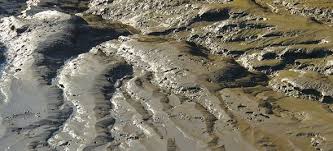Sludge to Energy: A Dallas Recycling Success Story
The City of Dallas is cleaning waste water, making energy and saving money – all at one plant on the south side of the city.
The Southside Waste Water Treatment Plant receives and cleans about 50 million gallons of dirty water a day. It is water that originates in homes and businesses – down the drains, sinks, toilets and showers – into the sewer system, and piped to the plant.
Through a multi-step process, the water is cleaned – almost to drinking level – then fed back into the Trinity River.
“We try to eliminate as much as possible – the food waste, the grease. It impacts our infrastructure and makes the water itself harder to treat,” said Jesse White, the plant manager at Southside.
White says, the plant also takes on another process: converting sludge – the name for that solid waste – into energy.
The solids are separated out and stabilized. In the process, methane gas is produced as a by-product. At one time the biogas was flared off as a means for disposal.
Around six years ago, the City of Dallas began a co-generation project, allowing that biogas energy to be recaptured and used by the plant for its own power needs.
It reduces dependency on the electricity grid, saving tax payer dollars. Right now the Southside Waste Water Treatment Plant powers about 50-60 percent of its own energy.
“It benefits Dallas citizens because waste water treatment plants are very energy intensive. Waste water plants are probably one of, or the largest consumers of energy throughout the United States,” said White.
The project helps the plant reduce its grid derived electrical needs by 27 million kWh a year.
Along with the solid waste conversion, the plant takes in grease for the same purpose.
The city’s “Cease the Grease” campaign includes more than two dozen cooking oil and grease recycling stations, at grocery stores, college campuses and other locations around the Metroplex.
Right now, the city collects an average of 300 gallons of grease a month, from homeowners who drop off canisters at the stations, and pick up empty bottles to take home to fill again.
“We would like to generate even more. There’s a lot more oil out there in Dallas,” said Helen Dulac, an environmental coordinator for Dallas Water Utilities.
Extra stations are currently available and Dulac says the city is looking for businesses, churches or groups who want to be host sites for collection. The Cease the Grease team will drop off the station and take care of maintenance for free.
It’s also a reminder for water customers to not pour cooking grease or fat down the drain, which can lead to big infrastructure problems.
“Even through bacon grease in the pan might be liquid when you pour it down the drain, it’s going to cool off and turn into a solid. It can clog up your pipes plus our city sewer pipes,” Dulac said.
Excerpted from CBS Local.





